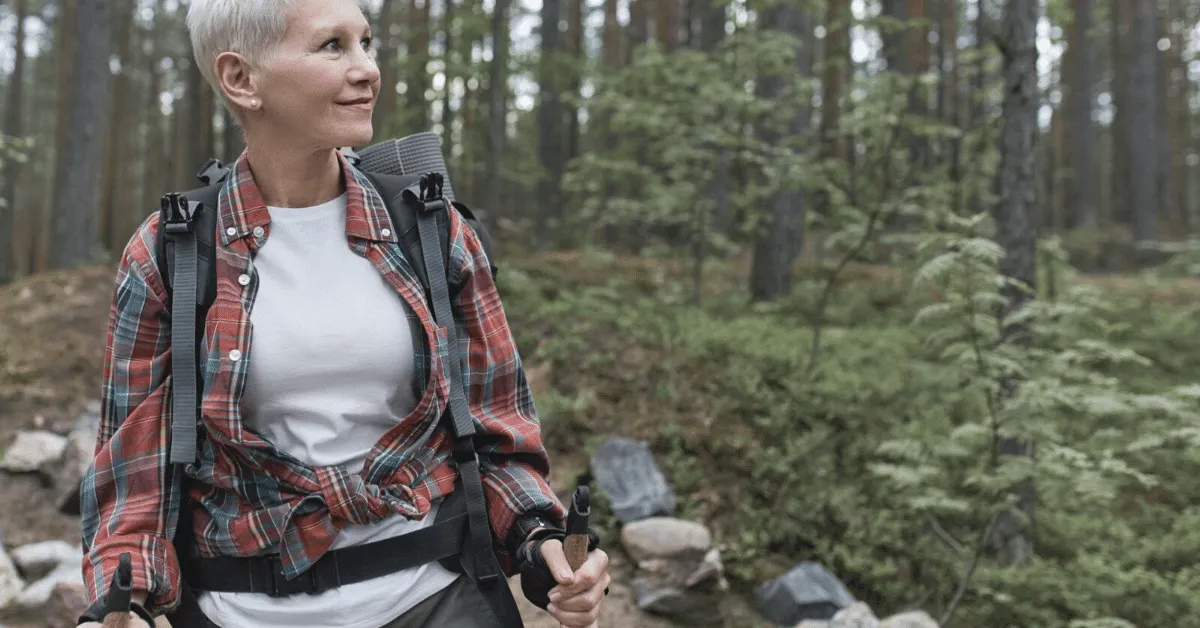Travel for single senior citizens is experiencing a surge in popularity, as more individuals embrace the freedom and adventure of solo travel in their later years. However, planning such a journey requires careful consideration of safety, accessibility, budget, and health. This guide delves into the essential aspects of solo travel for seniors, providing practical advice and resources to ensure a safe, enjoyable, and fulfilling experience.
From navigating airports and public transportation safely to selecting accessible accommodations and planning budget-friendly itineraries, this article offers a holistic approach to senior solo travel. We explore ways to mitigate loneliness, manage health concerns, and choose destinations and activities tailored to individual needs and preferences, ultimately empowering seniors to embark on the adventure of a lifetime.
Health and Wellness Considerations
Planning a solo trip as a senior citizen requires careful consideration of health and wellness. Prioritizing health ensures a safe and enjoyable experience, maximizing the benefits of independent travel while mitigating potential risks. Proactive measures before, during, and after the trip are crucial for a successful adventure.
Pre-Trip Health Checkups and Vaccinations, Travel for single senior citizens
Before embarking on any international or even domestic trip, a comprehensive health checkup with a physician is strongly recommended. This allows for the identification and management of pre-existing conditions that might be exacerbated by travel. The physician can assess the traveler’s overall health, review current medications, and advise on necessary vaccinations based on the destination. For example, vaccinations against influenza, pneumonia, and other diseases prevalent in the travel region should be considered.
Furthermore, the physician can provide guidance on managing any chronic conditions during the trip. This preventative step minimizes potential health complications and ensures a smoother journey.
Managing Chronic Health Conditions While Traveling
Managing chronic conditions like diabetes, heart disease, or hypertension requires meticulous planning for senior travelers. Adequate supplies of prescribed medications should be carried, exceeding the anticipated travel duration to account for potential delays. Medications should be stored properly, following the manufacturer’s guidelines. Travelers should also carry a detailed list of their medications, including dosages and potential interactions, along with the prescribing physician’s contact information.
A readily accessible copy of the traveler’s medical history, including allergies, is also crucial in case of emergencies. Consider wearing a medical alert bracelet or necklace that clearly indicates any relevant health conditions and emergency contacts.
Maintaining Physical and Mental Well-being During Solo Travel
Maintaining physical and mental well-being is paramount for a positive travel experience. Regular exercise, even simple activities like walking or stretching, helps combat sedentary lifestyles often associated with travel. Finding opportunities for physical activity, such as exploring destinations on foot or utilizing hotel fitness facilities, is beneficial. Stress management techniques, such as mindfulness exercises or meditation, can help mitigate the anxieties associated with solo travel.
Staying connected with loved ones through regular communication can also alleviate feelings of loneliness. Prioritizing sufficient sleep and maintaining a healthy diet further contributes to overall well-being.
Essential Health Items Checklist for Solo Senior Trips
A well-prepared health kit is indispensable for solo senior travelers. This should include a comprehensive first-aid kit containing bandages, antiseptic wipes, pain relievers, anti-diarrheal medication, and any personal medications. A copy of medical records, including insurance information and emergency contact details, should be kept separately from the original documents. Personal comfort items like eye drops, sunscreen, and insect repellent should also be included.
Prescription medications should be carried in their original containers, with clear labeling and sufficient quantities. A thermometer, a small flashlight, and any assistive devices are also advisable. Finally, consider packing a reusable water bottle to stay hydrated throughout the journey.
Choosing Suitable Destinations and Activities: Travel For Single Senior Citizens

Selecting the perfect destination for solo senior travel requires careful consideration of individual preferences and physical capabilities. Factors such as climate, accessibility, and cultural offerings play a crucial role in ensuring a safe, enjoyable, and enriching experience. This section will explore various destinations and activities suitable for single senior travelers, emphasizing low-impact options and catering to diverse interests.
Destination Comparison: Climate, Accessibility, and Cultural Attractions
Choosing a destination involves weighing several interconnected factors. Warm, sunny climates are often preferred by seniors, minimizing the risk of cold-related illnesses. Destinations like Portugal’s Algarve region or the Canary Islands offer pleasant weather year-round and relatively flat terrain, promoting ease of mobility. In contrast, destinations with challenging terrain, such as mountainous regions, might require higher levels of physical fitness.
Cultural attractions are another key factor. Cities rich in history, like Rome or Kyoto, provide ample opportunities for exploration, while quieter destinations, such as certain coastal towns in Ireland or Croatia, offer a more relaxed pace. Accessibility is paramount; destinations with well-maintained public transport, accessible accommodations, and assistance services are ideal for solo travelers with mobility challenges. For instance, many European cities are investing heavily in improving accessibility for tourists.
Age-Appropriate Activities and Tours
Low-impact activities are crucial for ensuring a comfortable and enjoyable trip. Walking tours focusing on historical sites or scenic routes, at a manageable pace, are excellent options. Consider guided tours tailored to seniors’ needs, often featuring slower paces and fewer strenuous activities. Gentle boat trips, scenic train journeys, or visits to botanical gardens provide opportunities for relaxation and appreciation of nature.
Many tour operators now specialize in offering accessible and age-appropriate tours, focusing on the enjoyment and comfort of their older clientele. For example, a leisurely cruise along a canal in Amsterdam or a guided tour of a historical castle with accessible ramps and elevators would be ideal choices.
Recommended Destinations for Single Senior Citizens
The ideal destination will largely depend on individual interests.
For history buffs, destinations such as Rome, Italy; Athens, Greece; or Kyoto, Japan offer rich historical sites and museums, often with accessible routes and audio guides.
Nature lovers might prefer destinations such as the Scottish Highlands, offering stunning scenery and opportunities for leisurely hikes on well-maintained trails, or Costa Rica, known for its diverse wildlife and easily accessible national parks.
Foodies could explore culinary hotspots like San Sebastian, Spain, renowned for its pintxos (Basque tapas), or Lyon, France, famous for its bouchons (traditional restaurants). These cities offer a range of accessible restaurants and food tours.
Benefits of Destinations with Good Healthcare Infrastructure
Peace of mind is paramount for solo senior travelers. Choosing a destination with readily available and high-quality healthcare infrastructure is a wise decision. This allows for quick access to medical attention in case of emergencies or unexpected health issues. Countries with well-established healthcare systems, such as those in Western Europe or Canada, often provide better safety nets for travelers.
The presence of English-speaking medical professionals is also a significant advantage, facilitating communication and understanding during medical emergencies. For example, countries with robust national healthcare systems and readily available emergency services can provide a more secure travel experience.
Embarking on a solo trip as a senior citizen can be an incredibly rewarding experience, offering opportunities for self-discovery, personal growth, and the creation of lasting memories. By carefully planning and preparing, seniors can overcome potential challenges and enjoy the freedom and independence of exploring the world on their own terms. This guide serves as a starting point, encouraging seniors to embrace the adventure and create a travel experience that is both safe and enriching.
Obtain a comprehensive document about the application of biskut florentine azie kitchen that is effective.


